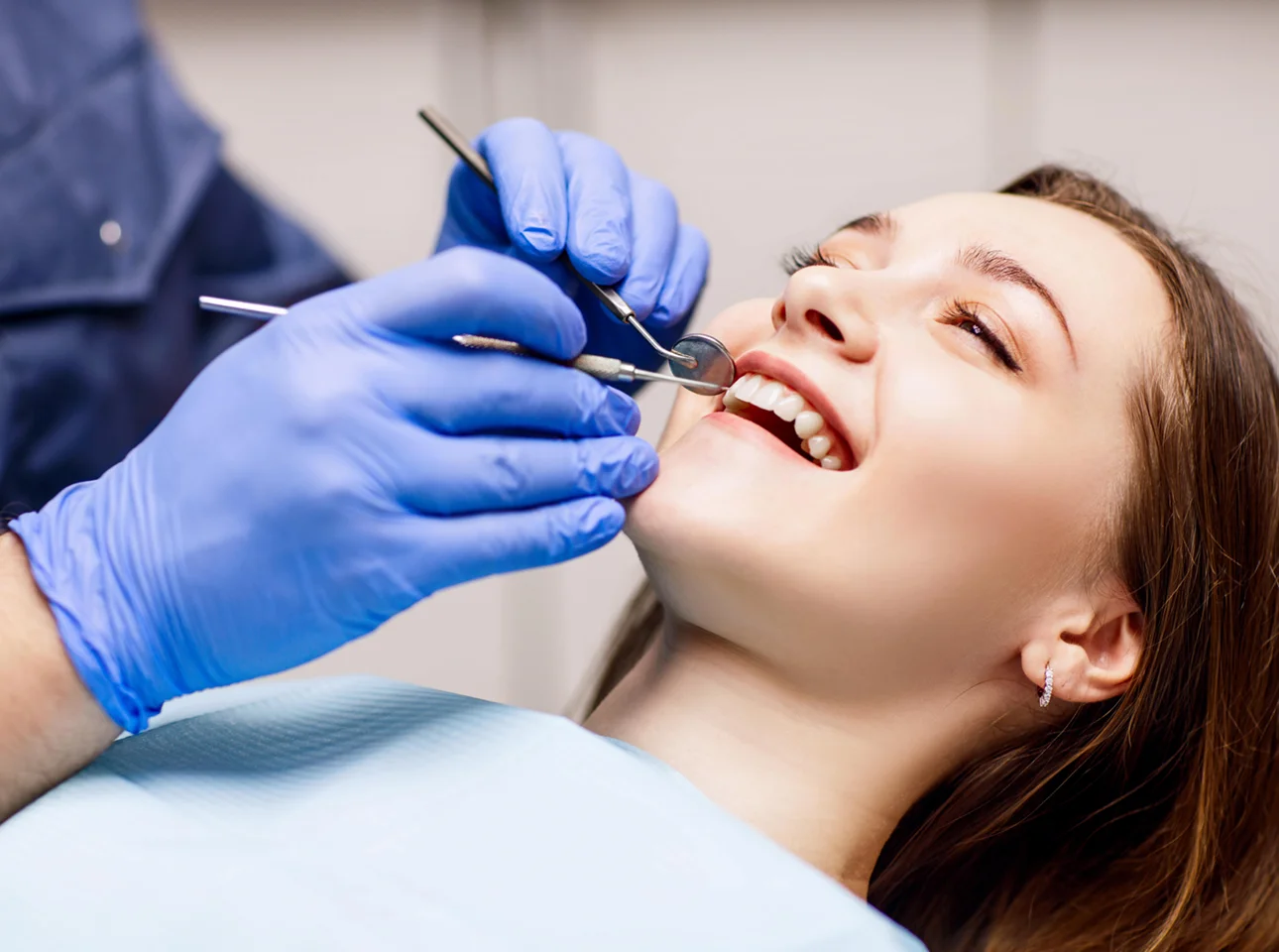Dear parents and children welcome to The Dental Roots. We're happy to see you and your little ones in our clinic. Let us tell you more about the importance of dentistry for children.
Children's dentistry or pediatric dentistry is an age-defined specialty that provides both primary and comprehensive preventive and therapeutic oral health care for infants and children through adolescence, including those with special healthcare needs.
It is easier for a child to develop a positive association with the dental clinic if they are introduced to it at a young age. Parents need to be aware of the dental health of their children and keep monitoring the eruption as well as the shedding of milk teeth. Children start to get their baby teeth during the first 6 months of life. By age 6 or 7 years, the first set of teeth starts getting replaced by secondary, permanent teeth. There have been remarkable improvements in technology and science and therefore it is now possible to prevent cavities and to ensure that your child is cavity-free.
What to expect on the first dental visit at a pediatric dental clinic?
- The first "routine" dental visit should be no later than your child's first birthday.
- The child's teeth and gums are gently examined
- X-rays may be taken to reveal decay and check on the progress of your child's facial bones and permanent teeth under the gums.
- Most important of all, the dentist will review with you how to clean and care for your child's teeth.
Teeth are like icebergs, about a third of each tooth is underneath your gums. Therefore, keeping your gums healthy is as important as making sure your teeth are well cared for. Parents should bring their children to the dentist every 6 months to have healthy oral hygiene.
Enamel is the hardest part of the body, it is the outermost layer of your teeth, which covers your teeth like a hard shell. It is mostly made up of calcium and phosphate. Even after being covered by enamel, a tooth is not invincible. Sugar and acids, like those found in soft drinks, interact with bacteria present in the oral cavity and cause tooth decay. Fluoride protects teeth by making them more resistant to acid.
Fluoride can be administered either as systemic fluoride or topical fluoride:
- Systemic fluoride can be administered as dietary fluoride (water, salt, sugar, vitamin tablets).
- Topical fluoride can be put professionally (gel, varnish) or by yourself (toothpaste, gels, toothpicks, chewing gums, floss).
When permanent teeth start to erupt, it is recommended to have professional fluoride treatment done to protect the newly erupted teeth from developing cavities.
One of the most cavity-prone areas is the pits and fissures which are present on the occlusal surface of posterior teeth. When a child is prone to cavities or has deep and narrow pits and fissures (which are hard to keep clean), these sealants are used to cover the area and protect the teeth from getting decayed. They are used on newly erupted molars and premolars.
With the advancement in technologies, the entire dental treatment has become pain-free. For nervous patients, several types of sedative techniques are available like conscious sedation and local anesthesia. When the procedure is long and treatment must be finished in one sitting, general anesthesia can be used.
The Dental Roots is dedicated to providing top-quality dental care to children, toddlers, and teenagers. With the help of our team consisting of the best dentists in Gurgaon, we make sure each dental visit is comfortable and a non-stressful experience for children.



93123527521093833370.webp)
98059438783285282572.webp)

11945113906909007973.webp)